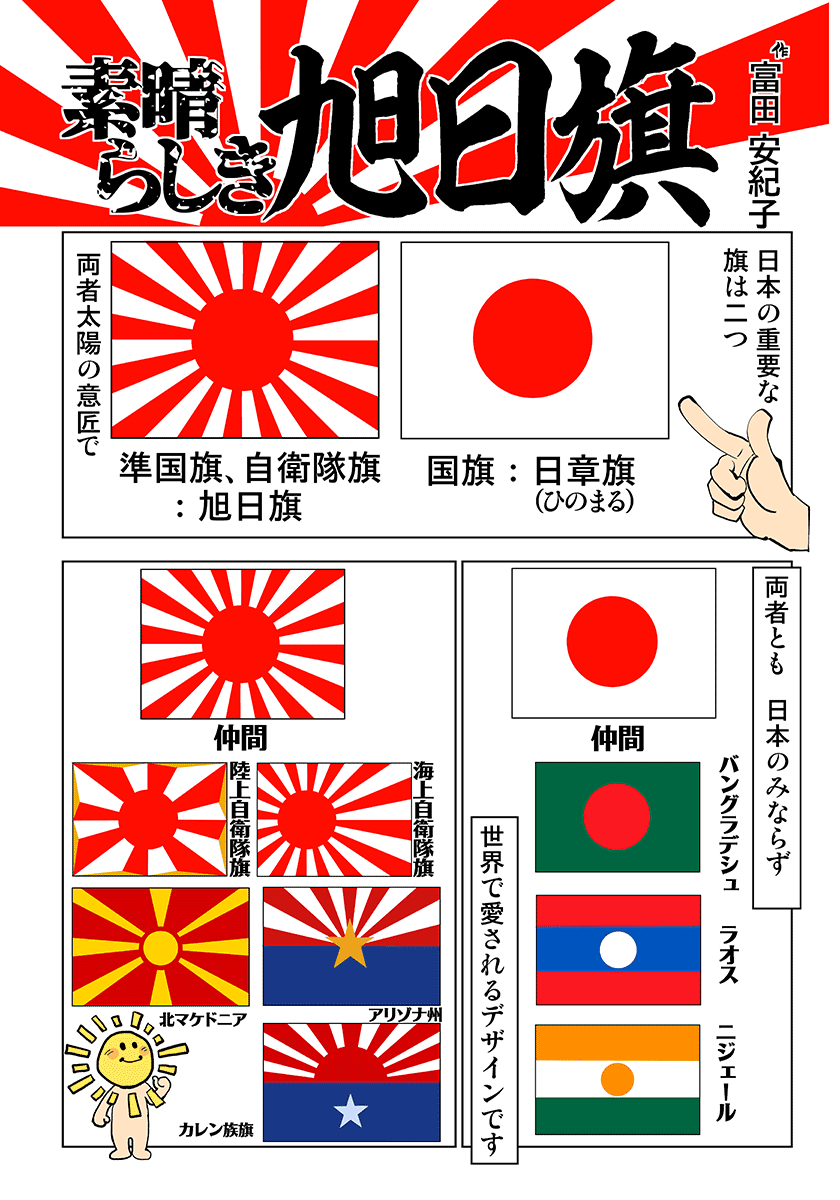Ref.>"【韓国】アパートに戦犯旗が掲げられる 教授激怒"
-----------------------------------------
>【韓国の反応】旭日旗を掲げた自衛隊艦艇が韓国に入港した事を批判した共に民主党、文政権時代にも入港していた事実が発覚し・・・【世界の〇〇にゅーす】【ニュース】
↓(See detail of this article)、レコード・チャイナの記事の翻訳(Translation of an article of Record China)
Translation; "If you like Japan so mucn..." = a flood of criticism to a resident who hoisted the Rising Sun Flag on the Memorial Day (* Hyunchungil, the commemorative day to mourn the mourners and the war dead soldiers in RoK
>"韓国、戦没者らを追悼する顕忠日に旭日旗を掲げた住民に批判殺到「そんなに日本が好きなら…」"
> 2024年6月6日、韓国・マネートゥデイは「釜山市のあるマンションの住民が、戦没者らを追悼する『顕忠日』の6日に太極旗(韓国国旗)ではなく旭日旗を掲げ、批判を浴びている」と伝えた。
> 記事によると、韓国の複数のオンラインコミュニティーに同日、釜山市水営区南川洞のマンションに旭日旗が掲げられているという内容の文章と、実際の写真が投稿された。
> 写真を見ると、大規模マンションの外壁に旭日旗2枚が並んで掲げられている。
On June 6, 2024, MoneyToday in S. Korea reported that "A resident of an apartment building in Busan City comes under fire for hoisting the Rising Sun Flag instead of the Taegeukgi (S. Korean national flag) on June 6, the Memorial Day (* Hyunchungil, the commemorative day to mourn the mourners and the war dead soldiers in RoK)."
According to the article, on that day, a sentence of the contents that the Rising Sun Flag was hosited in an apartment building in Namcheon-dong, Suyeong-gu, Busan City, and an actual photo were posted on plural online communities in S. Korea.
When you view the photo, it shows that two Rising Sun Flags are hoisted side by side on the exterior wall of a large apartment building.
> 当該マンションの住民は、5月18日(光州民主化運動が起こった日)には日の丸を掲げていた。
> 当時オンラインコミュニティーには「釜山市水営区南川洞のマンションに日の丸が掲げられている。家の近所に売国奴が住んでいる。警察も『どうすることもできない』と言っていた」との文章が投稿されたという。
> また、ソウル(ママ)の世宗市では3月1日(独立運動記念日)に日の丸が掲げられる騒動があり、同市の議員10人が「日本帝国主義の象徴物」の公共の場での使用を禁止する条例案を提出した。
The resident of the problematized apartment building raised the Japanese national flag on May 18th (the date when the Gwangju Democratization Movement occurred).
At the time, a sentence was allegedly posted on an online community, saying that "The Japanese national flag is hoisted on an apartment building in Namcheon-dong, Suyeong-gu, Busan. A traitor lives near the house. Even the police said that [nothing can be done about that]."
In addition, in Sejong city in S. Korea (* not Seoul), a trouble to hoist the Japanese national flag occurred on March 1 (Independence Movement Day), 10 city councillors submitted a by-law bill to ban the use of "symbols of Japanese imperialism" in public places.
> この記事を見た韓国のネットユーザーからは「一体何を考えているのか」「まさか韓国人ではないよね?」「そんなことをして、そこに住み続けられるの?」「そんなに日本が好きなら、日本に行って暮らせばいい」「人から注目されたいのだろう。すぐに身元が特定され、公開処刑されるよ」「大統領が親日だからこういうニュースが後を絶たない」「これも全て親日政権のせいだ」などの声が寄せられている。
S. Korean netizens, who read the article, are posting comments as follows;
"What on earth is he or she thinking?"
"He or she isn't a S. Korean, is it?"
"Does he or she think to be able to continuously live there, even though doing like that?"
"If he or she like Japan so much, it had better go and live here."
"Maybe, he or she want to be paid attention. The identification will be revealed and publicly executed instantly."
"The president is pro-Japan, so this kind of news never ends."
"It's totally due to the pro-Japan administration."













